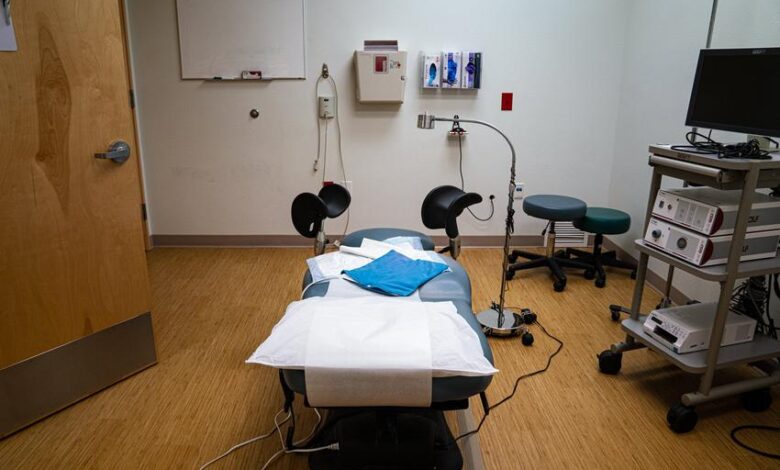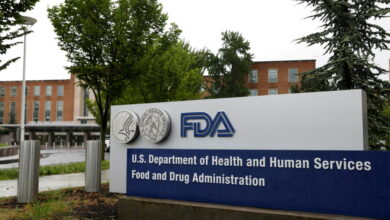KFF Poll Reveals Abortion Restrictions’ Detrimental Impact on Women’s Health, According to OBGYNs
Survey Provides In-Depth Insight into the Consequences of Recent Abortion Bans and Restrictions

A comprehensive survey conducted by the health research nonprofit KFF sheds light on the profoundly negative effects of sweeping abortion restrictions and outright bans implemented by states in the year following the landmark Dobbs v. Jackson Women’s Health Organization ruling. The survey, released on Wednesday, offers one of the clearest perspectives to date on how this Supreme Court decision has affected women’s healthcare in the United States.
The findings indicate that the Dobbs ruling, which eliminated federal protection for the right to abortion, has significantly impacted maternal healthcare, including maternal mortality rates and the management of pregnancy-related emergencies. Furthermore, the ruling has led to an increase in requests for sterilization, presented greater challenges and legal risks for OBGYNs, and resulted in worse outcomes for patients.
This nationally representative survey is the first of its kind since the Dobbs ruling, during which at least 15 states enacted complete abortion bans or restrictions within a few weeks of conception. A staggering 68 percent of surveyed OBGYNs reported that the Dobbs ruling worsened the management of pregnancy-related medical emergencies, while 64 percent stated that it exacerbated pregnancy-related mortality.
The survey, conducted between March 17 and May 18, collected responses from a random sample of 569 board-certified OBGYNs across the country who provide sexual and reproductive healthcare in office-based settings.
The responses underscore the growing concern over racial and ethnic disparities in maternal healthcare. A significant 70 percent of OBGYNs believe that the Dobbs ruling has further widened this gap, particularly affecting Black women who already face a higher risk of complications and death during pregnancy compared to women of other races.
The immediate aftermath of the Dobbs ruling revealed distressing consequences for women seeking urgent care. Patients experiencing emergencies such as miscarriages or ectopic pregnancies encountered delays and denials of care due to confusion among providers about rapidly changing restrictions.
Reports from last July highlighted distressing incidents, including the case of a Wisconsin woman who suffered prolonged bleeding after emergency room staff refused to remove fetal tissue following an incomplete miscarriage, leading to a state of confusion surrounding the restrictions. In Kansas City, Missouri, a hospital temporarily required “pharmacist approval” before dispensing medications used to prevent postpartum hemorrhages, as these drugs can also be employed for abortions.
The challenges persist, as reflected in the survey results. Forty percent of OBGYNs in states where abortion is banned reported facing constraints in managing miscarriages, while 37 percent experienced limitations in managing pregnancy-related emergencies. Access to abortion has diminished across different regions, particularly due to “trigger laws” in 13 states that immediately banned abortion when Roe v. Wade was undermined.
Half of the OBGYNs in states with abortion bans or gestational limits stated that they had patients unable to obtain the abortions they sought. However, the types of abortion services provided by OBGYNs remained largely unchanged, with medical abortions, aspiration abortions, and dilation and evacuation abortions continuing at similar rates. The most common reasons cited for not providing abortion services were state bans and institutional policies.
The survey also highlighted increased demand for contraception, particularly long-lasting methods, in areas with limited abortion access. Over 55 percent of OBGYNs reported more patients seeking birth control, with 43 percent observing an uptick in requests for sterilization and 47 percent noting increased demand for intrauterine devices and implants.
While the majority of OBGYNs offered contraceptive care, fewer provided emergency contraception, with one-third prescribing or providing all three methods and 15 percent not offering any form of emergency contraception.
Moreover, the Dobbs ruling has had broad negative implications for the OBGYN profession. Forty-two percent of OBGYNs expressed concerns about the legal risks associated with making patient care decisions and the necessity of abortion, especially in states with abortion bans or gestational limits.
A significant majority of OBGYNs, 55 percent, believe that the ruling has made it more challenging to attract new professionals to the field.
Early data suggests that these concerns may be justified, particularly in areas with restrictive abortion access. States that implemented abortion bans experienced a 10.5 percent decline in obstetrics and gynecology residency applications this year compared to the previous year, according to a report from the Association of American Medical Colleges.
Providers and hospitals are grappling with the complex legal landscape created by vague and confusing abortion restrictions that force medical professionals to navigate the delicate balance between medical judgment and legal compliance. The potential consequences of misjudgment in some states include imprisonment.
Already, some providers and hospitals have been unable to sustain obstetrics units, citing a shortage of pediatricians, reduced deliveries, and the challenging legal and political climate in states with severe abortion restrictions.
The KFF survey sheds critical light on the extensive repercussions of abortion bans and restrictions on women’s health, underscoring the urgent need for comprehensive and equitable reproductive healthcare access across the United States.
Read the original article on Financial Reports



